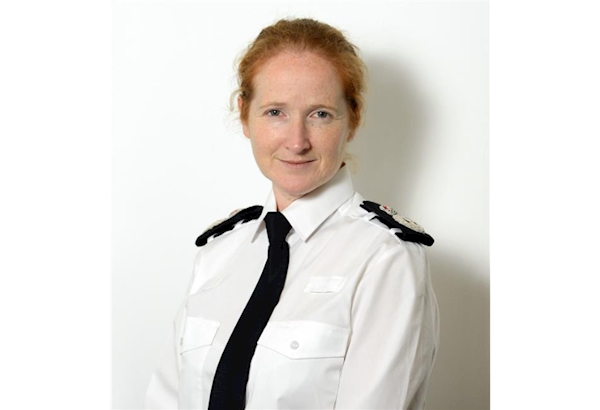|
Dear Police and Crime Commissioner Philip Wilkinson, I wanted to write to you and our communities following the BBC Panorama programme which aired on Wednesday evening. I am sure, like me, our communities watched the programme with the same sense of horror, frustration and anger. It will have also prompted several questions and concerns about whether the issues outlined in the episode are mirrored here, within their local police force. All cases of proven misconduct risk undermining the public’s faith in policing and I expect the very highest level of professionalism, care and diligence from each of my officers, staff and volunteers. I know this is something you are also totally aligned with. Wherever these standards fall short, it is right that robust and timely enquiries take place to ascertain why and, crucially, what impact this might have had on our service to the public. I also think it is imperative to have a transparent and accountable approach to misconduct within policing – the public rightly expect and deserve to know what action we are taking when individuals have let them down. I wanted to share with you the work we are undertaking here in Wiltshire, using some of the key questions our communities may have following this week’s Panorama. What are Wiltshire Police doing to remove those who have no right to serve the public? It is important to recognise that the vast majority of all police officers, staff and volunteers – in Wiltshire Police and across the country – are committed public servants, who wish to provide the very best service to ensure they are keeping their communities safeIn the last three years, 21 Wiltshire Police officers or staff have been dismissed and a further 17 would have been dismissed had they not resignedCurrently, eight police officers are suspended from duty, and two police staff members are suspended from their roles linked to ongoing conduct investigationsNew rules were introduced earlier this year which have created a presumption of dismissal for proven gross misconduct. This means there is a clear expectation that officers will be sacked unless there are exceptional circumstancesSince December 2023, we’ve operated an anonymous two-way internal reporting system which is geared to giving officers, staff and volunteers the confidence to report any wrongdoing or concerns they have. Since its launch, we have received 240 reports into the Counter Corruption Unit (CCU). This indicates that progress is being made to create a culture within Wiltshire Police to empower colleagues to call out and report wrongdoingIn addition to internal reporting, the CCU also receives anonymous intelligence from a variety of channels including the public via the Crimestoppers Police Anti-Corruption and Abuse Reporting Service and partnership agenciesOur communities can find out more about our misconduct processes, see upcoming hearings and read misconduct hearing outcomes on this section of our website.How are you improving your custody environment? Mandatory training for custody officers was recently refreshed with a focus on recognising vulnerability and appropriate use of powersWe’ve introduced independent custody scrutiny panels to oversee performance through the scrutiny of CCTV, body worn video, custody records and complaints to ensure high standards are being upheld and ensuring supervisory oversight and regular dip-sampling processes are in placeWe continue to engage with advocacy groups to share best practice and learning to improve the experience of women in custody – including a partnership with the Wiltshire Female Justice BoardWe work with the Youth Justice Service and Social Services to constantly review our approach to young people to ensure a child-centred approach and diversion away from custody - external professionals will also check and test our interactions with young people in custodyWe have recently introduced the presumption for legal advice for children and young persons, ensuring that legal advice is made available even if subsequently declined. We have also improved our guidance literature to ensure it is more accessible, and improved the custody environment to be more child centred.Inspectors are now embedded to each custody suite to provide visibility, support and drive performance standardsWe’ve also embedded both health care professions and mental health workers within our custody environment All Custody Sergeants and staff undertake 5 training days a year with an enhanced focus on Mental Health, equality and diversity, wellbeing and domestic violence.How are you tackling any issues within your organisational culture? As an organisation, we have ensured that my clear expectations around professional standards are highlighted in no uncertain terms at our staff roadshows and other engagement events.The vital importance of these standards form a key element of leadership training that is provided to first line leaders, along with my expectation around how they should be embodied and visibly represented in the example set by all leaders within Wiltshire PoliceTo understand how our colleagues are feeling and to audit our efforts to become an inclusive and supportive culture, we ran an anonymous whole Force employee survey earlier this yearMore than 1,000 of our employees responded via the independent, external survey provider Immediately after the survey results were fed back to the organisation, I held a dedicated, live broadcast to address any urgent, emerging themes and to outline a full engagement plan thereafter. This was followed by subsequent live updates from the Deputy Chief Constable and Assistant Chief Constable for Local PolicingSince then, we’ve held a series of focus groups across the organisation and have recently shared departmental survey results so line managers can formulate meaningful local action plans to best support their staff to ensure that they are delivering the standards of policing rightly deserved by our communitiesWe’ve committed to updating the organisation each month to demonstrate the action our leaders are taking in direct response to the themes emerging from the surveyWe’re also conducting a Culture and Inclusion Audit which will use national best practice to take a robust and evidence-based look at our current workplace culture and how we are engaging with local communities. The audit will help us to identify both our strengths and the areas where further focus is needed to create a truly inclusive and supportive culture. The insights gathered will directly inform our next steps, while keeping our ambition to be the most inclusive police service in the country at the heart of everything we do. Our IAGs are regularly consulted with to guide and counsel our progressWhat level of independent scrutiny is applied to ensure real change is happening? Public complaints - Wiltshire is one of several forces operating under a system which gives your office additional responsibilities beyond the minimum legal requirements, ensuring greater independence in how complaints are handledUnder this model in Wiltshire, the OPCC takes the lead on initial contact with complainants, working to resolve issues informally wherever possibleWiltshire Police’s Professional Standards Department (PSD) manages formal complaint handling and investigations, while independent adjudicators appointed by the OPCC carry out reviews of certain complaints to provide impartial oversightThis structure ensures that complaints are addressed fairly, transparently, and with independent scrutiny, helping to maintain public confidence in local policingCommunity Scrutiny Panels and the Independent Custody Visiting scheme – your office provides independent scrutiny of policing through Community Scrutiny Panels and the Independent Custody Visiting scheme. The panels review body-worn video and police powers, while volunteer custody visitors make unannounced checks on detainee welfare. Their findings are tracked through our organisation, and where concerns are raised, the OPCC escalates them, commissions reviews if needed, and publishes outcomes to ensure transparency and public confidenceIndependent Advisory Groups (IAGs) – made up of members of the public, our IAGs help challenge conventional thinking within policing and give an independent perspective on current issues and future planning. IAGs work as genuine partners with us to inform improvements in service delivery, with a particular focus on diversity and inclusionDorset Police police-perpetrated domestic abuse partnership – in August, we began a new partnership with Dorset Police aimed at improving the service we provide to victims of domestic abuse where the alleged perpetrator is a serving or former police officer or staff memberThrough this collaboration we are sharing specialist investigative expertise, introducing consistent processes across both forces, and providing enhanced support for victims from the very start of the investigation. This means that, no matter which of our counties a victim lives in, they will receive the same high standard of service and safeguardingI hope that by setting out our approach to these issues, our communities can see that we are totally committed to ensuring their local policing service operates with the highest level of integrity, care and professionalism. Should anyone wish to become part of any of the independent scrutiny processes, then more information can be found by emailing Chief@wiltshire.police.uk Finally, the trust and confidence of all our communities is a privilege that must be earned, respected and supported through continuous investment. It is only through this proactive and visible commitment can Wiltshire Police maintain its legitimacy, and people can be reassured that if they call us in need of support, that we will be there for them. This week – we have proactively reached out to many of our community members, partners and stakeholders to ensure we can capture and respond to their concerns, and we will continue to do this. Kind regards, Catherine Roper Chief Constable, Wiltshire Police 
|






